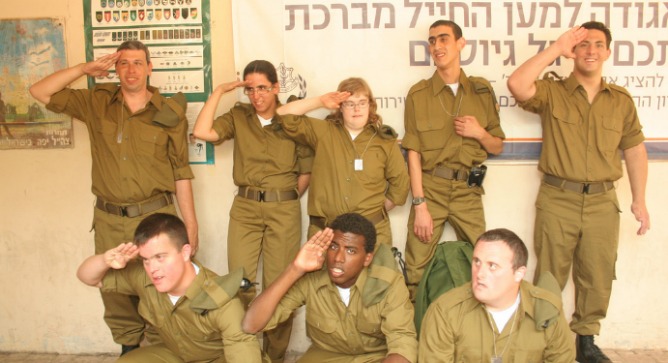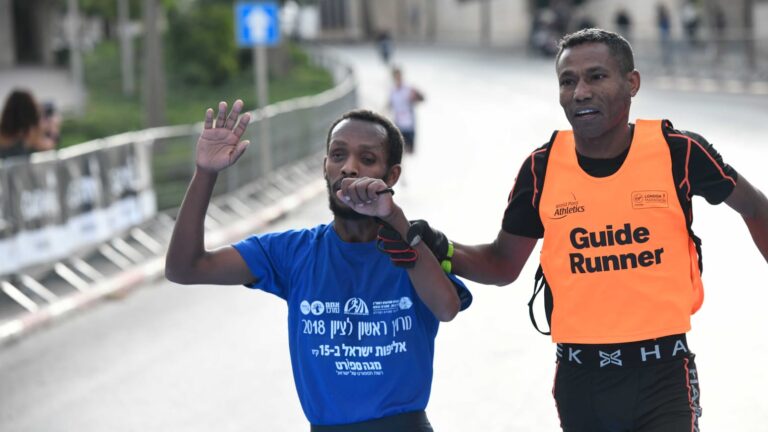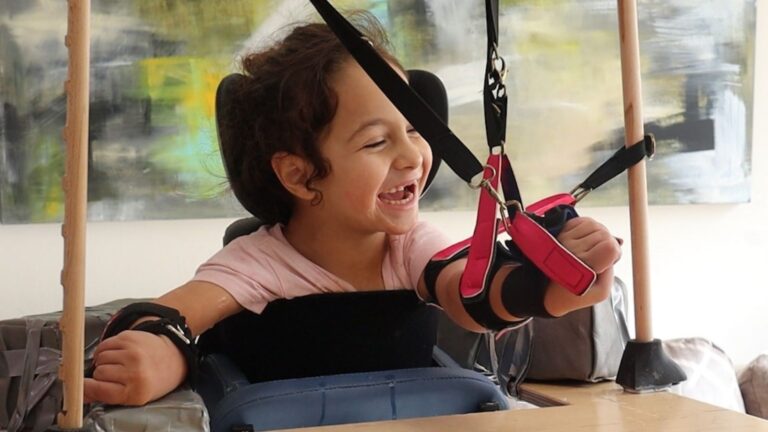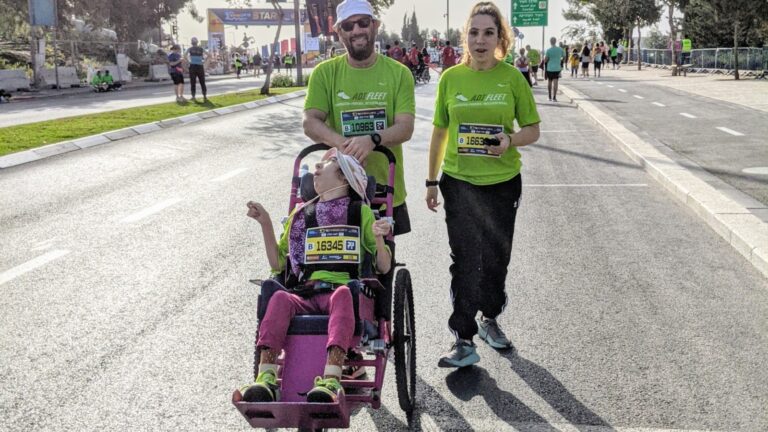On a typical Monday morning in Tel Aviv, eight children are navigating their way around a jungle gym at their day care. From afar, they could be anyone’s children anywhere in the world. But close up, the visitor sees these intellectually disabled youngsters are making strides that will eventually shape how the general Israeli society interacts with the disabled community.
The children attend kindergarten at the Tel Aviv headquarters of AKIM Israel, the National Association for the Habilitation of Children and Adults with Intellectual Disabilities. While their goal is to reach the big red slide – which they do — teachers and staff at the center have a wider aim, to secure the same opportunities in society for these children as those without disabilities enjoy.
Spread the Word
• Email this article to friends or colleagues
• Share this article on Facebook or Twitter
• Write about and link to this article on your blog
• Local relevancy? Send this article to your local press
“Our ability to influence meaningfully how the state of Israel will look in the future, means introducing the concept of integration,” according to AKIM chairman, Gen. (res.) Ami Ayalon.
The organization has won numerous awards for its work. Most recently, the Ruderman Family Foundation selected it as one of the 10 winners of an inaugural prize “for fostering the full inclusion of people with disabilities.”
Four of the winning organizations, from a field of 150 entries representing seven countries, are Israeli: AKIM, the Reishit School in Kibbutz Rosh Tzurim, SHALVA: The Association for the Mentally & Physically Challenged Children in Israel and the Vertigo Dance Company’s “The Power of Balance” program.
“Israeli society has come a long way in terms of inclusion,” Sigal Peretz-Yahalomi, director-general of AKIM Israel, tells ISRAEL21c. “More and more people have started to accept the disabled into their community. People with disabilities can work in the open market and 60 percent of disabled students are integrated into the regular education system. Yet some Israelis are still afraid of ‘the other.’ We still have a way to go.”
Equal in Uniform
AKIM, founded in 1951 by a group of Israeli parents, is the largest and most comprehensive provider of programs and services for the intellectually disabled — serving 34,000 children and adults throughout the country.
“We felt very honored to accept this award because [the late founder Morton] Ruderman had such a great will to change society,” says Peretz-Yahalomi.
A volunteer-heavy organization, AKIM offers 19 social clubs for 2,000 adults; 59 sheltered workshops for 2,500 adults; summer camps for 2,000 teenagers and young adults; 24 group homes for 600 people; and 14 apartment buildings for 4,600 adults.
The organization also runs dozens of projects throughout the year – a theater troupe, special employment, kindergartens, IDF programs, educational integration and a hotline for parents, among others.
The Ruderman prize of $20,000 specifically recognized AKIM’s Shavim BeMadim (Equal in Uniform) program.
“If we can get the intellectually disabled community to be accepted into the IDF, a foundation-stone of Israeli society, then we have succeeded,” says Peretz-Yahalomi.
Five years ago, AKIM sent its first five teens to the IDF program. Today, there are 48 intellectually disabled people serving in the army.
The AKIM members first volunteer for six months in an army post to learn the ropes. Then they join regular service.
Peretz-Yahalomi says that many “regular” Israeli soldiers report forming warm relationships with members of this minority community.
“It’s a great opportunity to integrate,” says Peretz-Yahalomi. “And commanders always ask me for more people from AKIM.”
Achievements every day
In Israel’s early days, intellectually disabled people were sent to institutions and kept away from society. Today, the trend is the exact opposite.
AKIM, together with the other Israeli organizations helping the disabled community, has a goal of full integration.
“We are trying to build a new society,” Peretz-Yahalomi says, highlighting the 1,091 volunteers at AKIM’s 60 branches. “The volunteer spirit in Israel is great. We see this spirit in our clubs, our programs; people open their arms for our people.”
Starting this semester, 15 law students from the Interdisciplinary Center (IDC) in Herzliya will volunteer their time to help the growing number of AKIM members needing help to fight for their legal rights or funding.
And while the community is more accepted, there are still those who protest against group homes for the disabled in their neighborhoods, there are parents who are against mixed classrooms, and there are people who are simply afraid of a person who is different.
“You see achievements every day,” says Peretz-Yahalomi, who admits that her job is very emotional. “I cry from sadness when I see the kids struggling to walk or eat. When I see them full of joy and dancing and singing that makes me cry, too.”
















